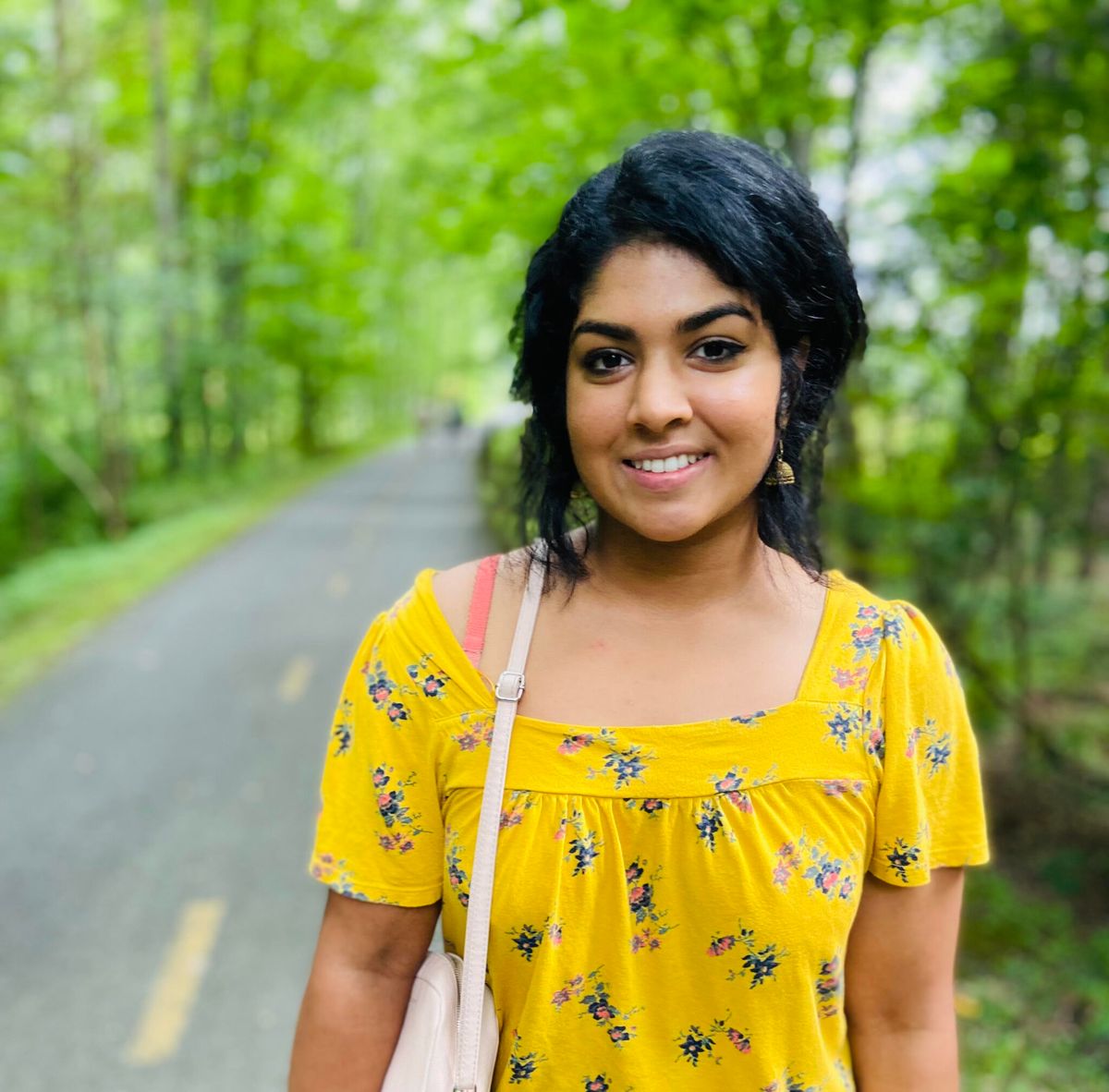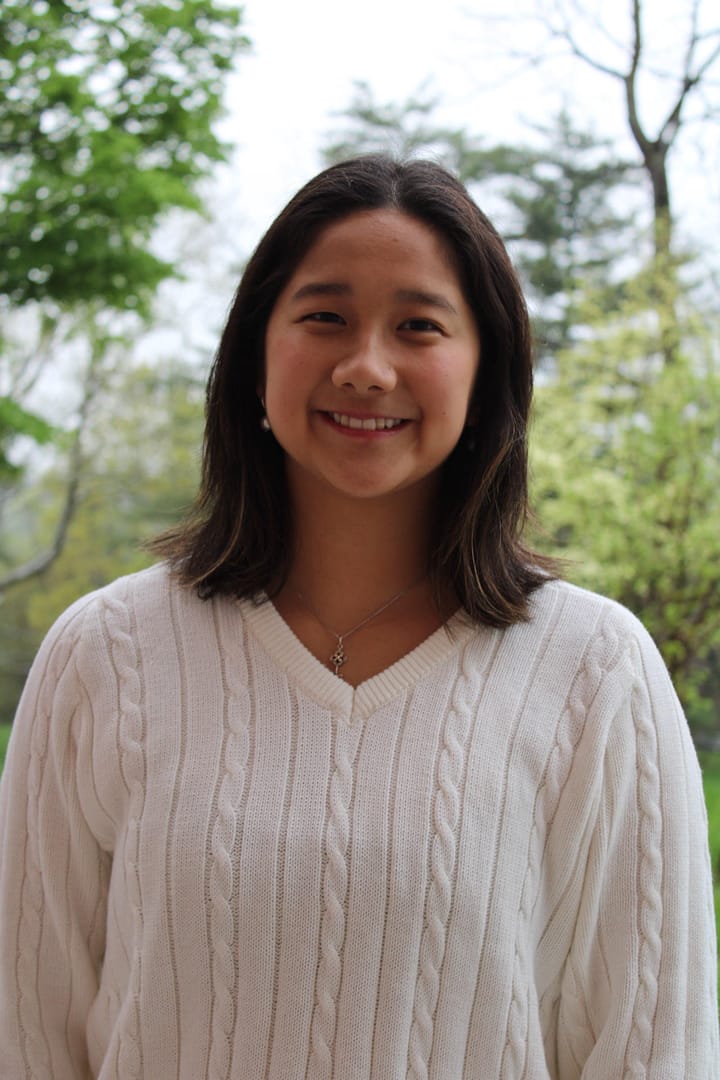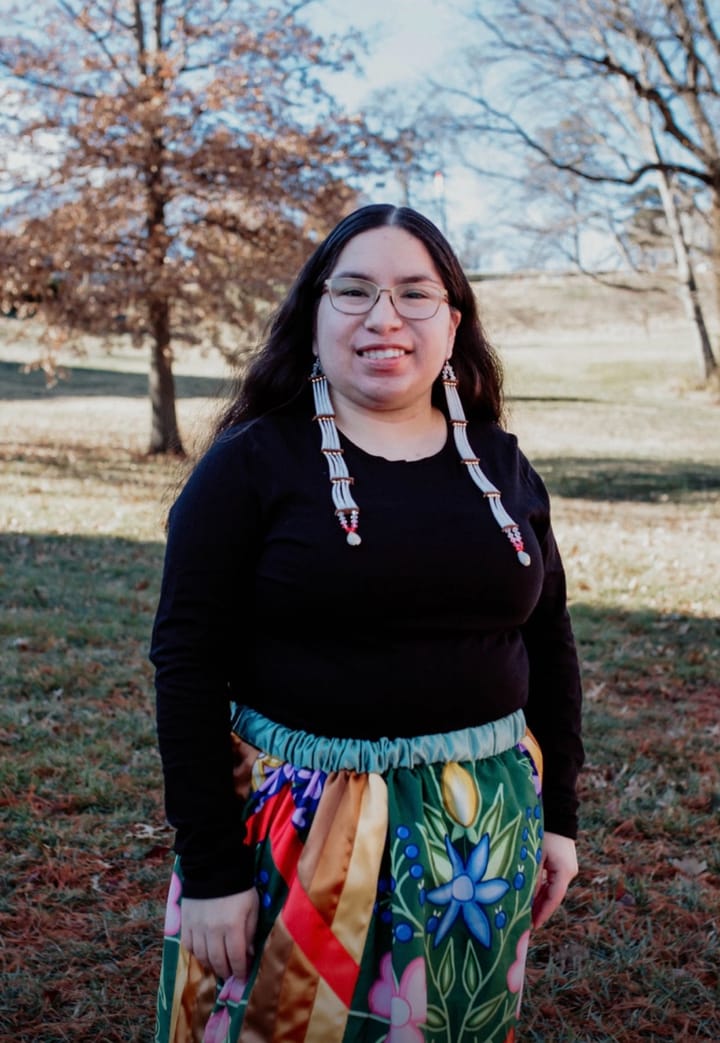Fresh Faculty: Meghana Mysore
Meghana Mysore is a Postdoctoral Fellow and Visiting Assistant Professor in the Department of English. She spoke to The Student about her relationship with creative writing, and how she is sharing it with her students this semester.

Q: How did you come to work at Amherst?
A: I studied English and creative writing in undergrad at Yale, and then I went straight into an MFA program at a small liberal arts college in Virginia called Hollins [University]. I enjoyed the program and got to teach creative writing there and just really loved this small liberal arts college environment and getting to know my students. And so after the program … I ended up actually teaching high school for a bit in the Midwest at an independent prep school. …[It] was really fun and I learned a lot about teaching, but I also have been working on a novel and stories for the last five years and… it was difficult to balance working on the novel and sending it out to agents and also teaching four different classes. I was looking for something that would support me as a writer as well as a teacher, so I was looking for opportunities at liberal arts colleges. This fellowship position [at Amherst] came up and it aligned perfectly with my goals at the moment.
Q: What is it that draws you to writing? And also teaching, as you just mentioned.
A: I’m one of those people for whom writing became my way to communicate at a pretty young age. I grew up in a suburb of Portland, Oregon, which was a pretty white suburb, and I think I struggled with questions of belonging and understanding my own culture and position in relation to it. I first started writing with poetry and that became a way for me to speak these ideas into the world in a way that I felt like I couldn’t through actually just conversing or speaking out loud. And then I kept writing because… it was so important to me and the development of my voice. … [Eventually, I] went to college and studied with some really great writers who were supportive and I saw for myself a clearer vision of what it would be like to at least be sort of like these people who were writers and teachers. There’s just something about talking with students about writing and different forms of it, and the possibilities of language and story and what it can do for not just yourself, but to also connect us to other people and to make us feel less isolated in the worlds that we exist within. [That] just really appeals to me and it makes me feel like writing, which can often feel very intrinsic or isolated, has this external purpose. So for me teaching is that way of connecting to other people. And I think there’s really nothing more powerful in my view than being able to talk about a narrative and why it’s impactful and why it makes you feel a certain way. So I’ve just always known that these are the things that move me and that make me feel like I have purpose.
Q: You’ve delved into different genres and different forms of writing–what is your sense of the different strengths they have?
A: I started writing with poetry and there’s a certain freedom that I find in that form when, of course, I feel like sometimes it’s difficult for me to complete thoughts or have a complete narrative around what I think, because writing for me feels like such a place of discovery. That sort of fragmentation of the line and the space that poetry allows just on the page … is really appealing to me to convey [a] sort of uncertainty. But I think I also bring that into the other genres that I write ... My creative nonfiction workshop is like, how do these genres come together? How can an essay be poetic or be lyrical or play with space and play with fragmentation, and I think that can come into fiction writing as well. You have to be a little more conscious of the narrative that you’re building, but it still feels like that playfulness is really important for me.Maybe I associate [uncertainty] the most with poetry, but I try to keep that sense of experimentation and playfulness [in everything I write].
Q: So do you encounter challenges in these forms of writing as well?
A: I had heard how important revision is, but I didn’t understand it until I was in a fiction workshop in college and this professor [was] so influential to me, but also [created] the most difficult creative writing environment I’d been in. I turned in a story and he was like “I don’t think it’s there yet.The feeling isn’t quite rising to the page.” I [was] being pushed in that way to look again and figure out what is the center of this story and what am I trying to say, you know? That, for me, is a process that now comes through revision, like again and again and figuring out what are the parts here that need to stay and what are the parts that could go. That element of reimagining it can feel really daunting. Like when you come to the page and you’re like, how do I take all the feedback that I’ve gotten from peers or from professors, and how do I take that and actually incorporate it into this story? But I think [I’m] learning that it’s okay to have really bad drafts … and revision can also be a process of discovery.
Q: Is that something that you’re trying to implement into the class that you’re teaching here?
A: Yeah, I mean, in our creative nonfiction submissions, I always framed them as experiments. That’s why we also do a lot of creative writing in class to take out some of that pressure of doing that initial generation, which I still think is the most important part of writing that first draft, [just] actually finishing it. We’ll do exercises in class, for instance, “word throw,” which is actually something that the writer Jennifer Egan did. It’s where you say all these random sort of phrases, and you’re writing them down trying to get them down onto the page and then [you] just keep writing between hearing those phrases. And that really emphasizes the generative element of writing, of continuing on and going and not letting that self-editor get in the way. Once you have that draft I emphasize [the] possibilities, like the ideas that peers have for revision or that I might have as possibilities for going forward. I think part of the skill of a creative writing workshop is honing what you want to take, [because] sometimes [there will be] differing thoughts [between what your] peers have, and the vision that you have for the piece.
Q: If it’s possible, could you tell me a little bit about the things you’re working on right now?
A: My primary project is a novel in stories that I am finishing now, working with an agent and doing edits on. But it’s about three generations of a South Indian American family inspired by my life and my parents’ experiences in the Pacific Northwest and the suburb[s] of Portland, Oregon. That experience of growing up in a place where you don’t really see yourself and what that’s like for the three members of this family. The parents are immigrants from South India and so there is a generational gap between them and their daughter. [I’m exploring] different experiences around love and loss and belonging through a span of about 20 years. It’s a rotating point of view, [so] certain stories are focused on the mother character and some are focused on the father and then some are the daughter throughout these 20 years. [What] I’m really trying to explore is unraveling certain stereotypes around the model minority myth and … what sorts of struggles this family has internally, emotionally and mentally. And also the question which has been relevant to my life of who can be an artist, who can pursue the arts, what does it mean to be an artist as a brown person, as an immigrant, as a daughter of immigrants? I feel like [these questions] aren’t as depicted in literature or in the media…
Q: Do you think you as a person can be differentiated from you as a writer?
A: Sometimes I wish that I could differentiate moreso [between] these two parts of me, but I feel like because I started writing at such a young age, I don’t know if they can be separated anymore. I feel like my writing self is myself, maybe to my own annoyance sometimes. I’ll be speaking in a way just in conversations with friends where I’m imagining these sentences being written down … writing has become so integral to the way that I’m thinking through experiences in my life. It’s hard for me to not be thinking as a writer now, and there’s a kind of beauty and magic in that certainly…
Q: On the opposite end, do you have any hobbies or interests besides teaching or writing or what your students would know about?
A: I love watching TV shows. I really love “The Good Place.” I like finding new TV shows that are funny and weird, but also kind of meaningful. And I really [enjoy] taking long walks … [while] listening to dream pop — I think that’s a genre. And I love my dog, who is back home in Portland right now with my parents… She’s on my phone case, and she’s an Australian Cattle Dog and an Italian Greyhound. I honestly feel like she could be a philosopher dog, like, we talk about philosopher kings [and] this is a philosopher dog. She just stares out the window for hours every morning. I really miss playing with her.
Q: Correct me if I’m wrong, but it hasn’t been that long since you yourself were an undergrad. Do you have any advice you could give to the students at Amherst right now?
A: Yeah, I graduated in 2020. I feel conscious of being [one of the] younger faculty here, but I also think it might be a strength in a certain way, because I understand some of what you’re going through as undergrads. For me, my background lends me a certain perspective in this space where my parents are very smart people, but I didn’t grow up in a home with academics or artists. And so I think I have a perspective on what it’s like to be here and to be pursuing things that feel different or feel scary and to be trying to follow your own path and not knowing what that will look like. [My advice is] to not be afraid to lean into your passions. I think it took me some time to feel like it was okay to be an English major [and] to study writing, but it’s always what I wanted to do. … If there is that passion, there will be a way. [I’d also advise students] to see college as a time for exploring your interests, because there is such a beauty in that and being able to have conversations with your peers, not just in the classroom but outside of it. [Also] asking questions that are both intellectual and emotional. Let yourself be the full range of a human being here and know that you deserve that.





Comments ()